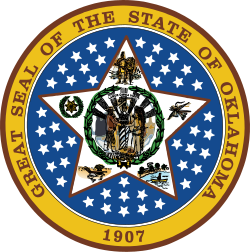| | |||||||||||||||||
November 7, 1978 | |||||||||||||||||
| |||||||||||||||||
 County results Nigh: 50–60% 60–70% 70–80% Shotts: 50–60% 60–70% | |||||||||||||||||
| |||||||||||||||||
| Elections in Oklahoma |
|---|
 |
The 1978 Oklahoma gubernatorial election was held on November 7, 1978, to elect the next governor of Oklahoma. Incumbent Democratic governor David Boren chose not to run for re-election to a second term in office. Instead, Boren decided to run for the United States Senate. Former governor, and sitting lieutenant governor George Nigh was elected, defeating Republican nominee Ron Shotts.

